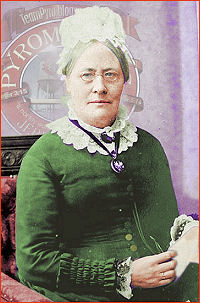 Submitted for your approval, two propositions:
Submitted for your approval, two propositions:- The Bible tells us everything we need to know, as Christians.
- The Bible does not tell us everything we want to know.
If you're Roman Catholic, Orthodox, Mormon, or some kinds of Charismatic, you won't agree with the first. It's beyond the scope of this post to reinvent that particular wheel.
As to the second, I've come to see that the Bible is, in a specific sense, a very pragmatic book. That is, it is written with its actual or potential readers in mind. Put negatively, it is not written for the benefit of beings who will never read it.
We tend to lose sight of that fact. A lot of ink has been spilled, and a lot of thought expended, striving after answers to Category 2 questions, questions which are not countenanced as issues in Scripture.
This should upset us less than it does. Candor would force us to admit that we're not doing all that well in dealing with Category 1 answers, which is where we really should invest more energy.
How do I tell whether the question I have, or that I am being asked, is a Category 1 or a Category 2 question? There are at least two fairly straightforward ways to discern one category from the other. Simply pose two counter-questions:
- Is your question answered directly in Scripture?
- Why do you need to know?
Did Peter want to know what John's end would be? Certainly.
Did he need to know? Jesus didn't think so: "If it is my will that he remain until I come, what is that to you? You follow me!" (v. 22). Don't busy yourself with Category 2 questions, Peter; you've got your Category 1 information -- now focus on that!
Perhaps some examples of questions would help. You may not agree with my specifics. With such a sharp bunch of readers, I'm sure you know (or think you know) many answers that I don't. Regardless, I hope you'll profit from the principles.
Start with what should be a softball-question: "What must I do to be saved?"
If your Bible study, and your theology, don't instantly hand you the answer to that question on a shiny platter, there's something wrong with one -- or both.
So apply the test-questions. Is the question answered directly in Scripture? Absolutely: "Believe in the Lord Jesus, and you will be saved" (Acts 16:31). Why do I need to know? Because I want to be saved!
Okay, all right; that was too easy. Let's take a few others, progressively less easy and more emotionally involving:
- When cats and dogs die, do they go to Heaven?
- When infants die, do they go to Heaven?
- What happens to heathen who never hear of Jesus?
 So pose the second question: why do I need to know? Well, honestly, I don't. I'm not a dog or a cat. Until Fido stands up on his hind legs and yelps "Rars, rar rar ra roo ra ra rar'd?", we won't really need to have an answer.
So pose the second question: why do I need to know? Well, honestly, I don't. I'm not a dog or a cat. Until Fido stands up on his hind legs and yelps "Rars, rar rar ra roo ra ra rar'd?", we won't really need to have an answer.Do I feel that I "need" to know the answer, because Heaven won't really be Heaven if ol' Butchie isn't there? (I actually have seen just such a statement, to my horror.) If so, then I have a serious problem. In fact, the Bible addresses that problem (Exodus 20:3), though it doesn't answer the question I pose.
What about the death of infants? That is a very poignant question to me, personally. I find clues and themes in Scripture that lead me to cherish hope.
But is that question directly answered in Scripture, in so many words? I have to admit that it is not.
Why do I need to know? I have to admit that I, personally, do not. You see, those who die in infancy will by definition never read the Bible. So it does not answer their (unasked) question. Aslan tells me my story; he does not tell me others' -- if the Narnian allusion may be forgiven.
But I do need to know that God will deal mercifully, and justly, and kindly, with such who die. Does the Bible give me reason to trust Him, His ways, His judgments? Do I have cause to trust His dealings with those I've lost? More than abundantly so (Genesis 18:25; Romans 11:33-36, etc.). I know that, when I know all the facts, I will agree from the heart with His judgment and His disposition, and I will praise His justice and His grace with perfect joy (cf. Psalm 16:10; Revelation 21:4).
And what of the last question, concerning "the heathen"?
Let's put this question where we most often find it: on the lips of someone who is trying to feel better about his refusal to bow the knee to Christ. "So," he scoffs, "you're telling me that Joe Hutu Tribesman, who's never been within five miles of a Christian missionary, is going to burn in Hell forever because he hasn't believed in a Jesus he's never even heard of?"
To be honest, in such cases, I skip right to the second question: "Why do you need to know? After all, you
 are not in that position. You are probably within a five miles of enough Bibles to make a stack taller than you are. You, right now, are talking to someone who can point you to Jesus. Are you really that concerned about the lost? Then what is your plan? Are you going to 'help' them by going to Hell with them?"
are not in that position. You are probably within a five miles of enough Bibles to make a stack taller than you are. You, right now, are talking to someone who can point you to Jesus. Are you really that concerned about the lost? Then what is your plan? Are you going to 'help' them by going to Hell with them?"Isn't the point fairly self-evident? The Bible has nothing to say to people who will never hear -- because they'll never hear! Do we need to know? No. What do we need to know? We need to know that our business is to go and bring them the Gospel (Matthew 28:18-20; Romans 10:13-17). We need to know that Jesus Christ is man's only hope of salvation (John 14:6; Acts 4:12). And those we tell of Him need to know that they have no chance, no prayer, no hope of evasion from Him.
My biggest problem isn't divining answers to the burning Category 2 questions I can dream up. My problem is the Category 1 answers I already have, and am not doing that well in embracing, internalizing, and living out.
Let's learn to minor on speculation, and major on sanctification.



 I was doing some reading this week in connection with my ongoing series of posts on 2 Corinthians 5:21, and I decided to read C. H. Spurgeon's sermons on that text. (He preached five of them, and one was titled
I was doing some reading this week in connection with my ongoing series of posts on 2 Corinthians 5:21, and I decided to read C. H. Spurgeon's sermons on that text. (He preached five of them, and one was titled  SOMETIME AGO an excellent lady sought an interview with me, with the object as she said, of enlisting my sympathy upon the question of "Anti-Capital Punishment." I heard the excellent reasons she urged against hanging men who had committed murder, and though they did not convince me, I did not seek to answer them.
SOMETIME AGO an excellent lady sought an interview with me, with the object as she said, of enlisting my sympathy upon the question of "Anti-Capital Punishment." I heard the excellent reasons she urged against hanging men who had committed murder, and though they did not convince me, I did not seek to answer them.







 Let that sink in for a minute. In the mind of the WMT book buyer(s), LDS and Joyce Meyer and Rick Warren are all the same kind of thing. The big fat irony, of course, is that they are actually the same kind of thing—but as Inego Montoya is famous for saying, “I don’ thin’ thad means wha’ you thin’ thad means.”
Let that sink in for a minute. In the mind of the WMT book buyer(s), LDS and Joyce Meyer and Rick Warren are all the same kind of thing. The big fat irony, of course, is that they are actually the same kind of thing—but as Inego Montoya is famous for saying, “I don’ thin’ thad means wha’ you thin’ thad means.” Isn’t that ironic? Because WMT can cherry-pick the things from CBA and then get the publishers to cheap-down the bindings, and then create franchises around personalities, CBA sees that as a threat to sales.
Isn’t that ironic? Because WMT can cherry-pick the things from CBA and then get the publishers to cheap-down the bindings, and then create franchises around personalities, CBA sees that as a threat to sales.



 Historic Protestantism was born out of Luther's realization that the doctrine of justification by faith is the heart of the gospel. That conviction of Luther's has always been part of the fabric of Protestant belief. That's a stubborn fact of history that tends to rankle some folks today who insist that the central principles of historic Reformed theology—starting with sola fide—are outdated and too narrow and therefore need to yield to "a more generous, catholic spirit."
Historic Protestantism was born out of Luther's realization that the doctrine of justification by faith is the heart of the gospel. That conviction of Luther's has always been part of the fabric of Protestant belief. That's a stubborn fact of history that tends to rankle some folks today who insist that the central principles of historic Reformed theology—starting with sola fide—are outdated and too narrow and therefore need to yield to "a more generous, catholic spirit."
 John is different from the Synoptics! (Crowd: "Aiieeeee!")
John is different from the Synoptics! (Crowd: "Aiieeeee!") spreadable. It hurts in so many ways. Reporters who have probably never in their lives spent an hour in a Bible-teaching church, who probably literally could not name a single practicing Biblical Christian whom they count as friend, lecturing the Christian church on what a terrible job we're all doing. It hurts.
spreadable. It hurts in so many ways. Reporters who have probably never in their lives spent an hour in a Bible-teaching church, who probably literally could not name a single practicing Biblical Christian whom they count as friend, lecturing the Christian church on what a terrible job we're all doing. It hurts. This excerpt is from
This excerpt is from 
 This subject has been batted around the blogosphere for as long as I can remember. Ever since I began blogging, I have been planning to comment on it eventually.
This subject has been batted around the blogosphere for as long as I can remember. Ever since I began blogging, I have been planning to comment on it eventually. The whole gospel message is contained in embryo in those words. That short statement is crucial to our understanding of the nature of the atonement, the doctrine of justification by faith alone, and the twin principles of imputation and substitution. It teaches great truths about the character of God, the sinlessness of Christ, and the simplicity of salvation. It summarizes the core truth of biblical soteriology. It has important implications for Christology. And it even says something about theology proper, because it plainly assumes the sovereignty of God, the love of God, the justice of God, and the grace of God.
The whole gospel message is contained in embryo in those words. That short statement is crucial to our understanding of the nature of the atonement, the doctrine of justification by faith alone, and the twin principles of imputation and substitution. It teaches great truths about the character of God, the sinlessness of Christ, and the simplicity of salvation. It summarizes the core truth of biblical soteriology. It has important implications for Christology. And it even says something about theology proper, because it plainly assumes the sovereignty of God, the love of God, the justice of God, and the grace of God. Listen: this is still
Listen: this is still  Protests worldwide have resulted in innumerable costs in human lives and property damage -- because nobody has been killed and nothing has been burned or looted.
Protests worldwide have resulted in innumerable costs in human lives and property damage -- because nobody has been killed and nothing has been burned or looted.
 Before I go on, this has some pretty significant implications on the link-trolling British blogger's discussion of the T4G affirmations and denials. In my view, when we spend time discussing things in an apologetical context, or in a "bunch of guys who are Christians chewing the fat" context, like Dr. Mohler's choice of words to describe the authority of Scripture rather than why we should desire God when he has spilled the righteous blood of Christ for us, that's like spending a $100 bill on sawdust. Pheh.
Before I go on, this has some pretty significant implications on the link-trolling British blogger's discussion of the T4G affirmations and denials. In my view, when we spend time discussing things in an apologetical context, or in a "bunch of guys who are Christians chewing the fat" context, like Dr. Mohler's choice of words to describe the authority of Scripture rather than why we should desire God when he has spilled the righteous blood of Christ for us, that's like spending a $100 bill on sawdust. Pheh. Well, if I thought all Lutherans and Presbyterians were going to hell based on the kind of baptism they are taking or giving, you might be right. The problem is that I don't think that at all: what I think is that baptism is for the believer, and it is an outward sign of an inward reality -- a symbol of identification with Christ done in obedience. So those who baptize infants might, in my view, put the cart before the horse, but they're not going to hell for it. They are allowed their mistake in that belief. The difference between me and the straightway advocate is that I allow for the fact that the method of baptism is secondary, and that there is no violation of the Gospel if one is sprinkled or dipped or comes up straight-way.
Well, if I thought all Lutherans and Presbyterians were going to hell based on the kind of baptism they are taking or giving, you might be right. The problem is that I don't think that at all: what I think is that baptism is for the believer, and it is an outward sign of an inward reality -- a symbol of identification with Christ done in obedience. So those who baptize infants might, in my view, put the cart before the horse, but they're not going to hell for it. They are allowed their mistake in that belief. The difference between me and the straightway advocate is that I allow for the fact that the method of baptism is secondary, and that there is no violation of the Gospel if one is sprinkled or dipped or comes up straight-way. One last pass at this for clarity's sake. The Bible certainly does not teach which operating system to use on your computer, or whether Linux, Mac or Windows is Christ's choice for computing output. However, I prefer Mac OS, and most people prefer Windows. Now which choice is "biblical"? None of them are. However, that does not mean that any of the are unbiblical -- unless someone demands that Mac OS is God's OS and all other PC users are heretics based on a very thin interpretation of Deu 32:10, Ps 17:8 and Prov 7:2.
One last pass at this for clarity's sake. The Bible certainly does not teach which operating system to use on your computer, or whether Linux, Mac or Windows is Christ's choice for computing output. However, I prefer Mac OS, and most people prefer Windows. Now which choice is "biblical"? None of them are. However, that does not mean that any of the are unbiblical -- unless someone demands that Mac OS is God's OS and all other PC users are heretics based on a very thin interpretation of Deu 32:10, Ps 17:8 and Prov 7:2.


 Okay, Edwards probably never said that, but I do. Of course I know what Spurgeon meant, and what he meant was true. But what he said was simply, in my view, a mistake. But it is old! It's very old! Old, yet mistaken. It happens.
Okay, Edwards probably never said that, but I do. Of course I know what Spurgeon meant, and what he meant was true. But what he said was simply, in my view, a mistake. But it is old! It's very old! Old, yet mistaken. It happens.
 According to KidzWorld, death as a "lifestyle" is really cool. "If you identify more with Marilyn Manson than Britney Spears, or if you'd rather date your mom than be caught wearing anything floral or J. Lo inspired, you should check out the ins and outs of gothic style," the page tells little girls. The graphic to the left, replete with skull and crossbones on the bottle, is from the KidzWorld site.
According to KidzWorld, death as a "lifestyle" is really cool. "If you identify more with Marilyn Manson than Britney Spears, or if you'd rather date your mom than be caught wearing anything floral or J. Lo inspired, you should check out the ins and outs of gothic style," the page tells little girls. The graphic to the left, replete with skull and crossbones on the bottle, is from the KidzWorld site. At least one 15-year-old critic with obvious expertise in things Gothic (nickname: Acidalayde) thinks KidzWorld's advice is a tad lame. She offers this helpful addendum for the younger girls: "[They] forgot to mention Tape. Duct-Tape, and electrician's tape, can be your best friend. And GAH. Remember kiddies, being the mime is bad, go past the chin-line and to the neck. And neon colours work too. If you want help with style look up Switchblade Symphony, Rasputina, Sisters of Mercy, Cradle of Filth on search engines such as Google"
At least one 15-year-old critic with obvious expertise in things Gothic (nickname: Acidalayde) thinks KidzWorld's advice is a tad lame. She offers this helpful addendum for the younger girls: "[They] forgot to mention Tape. Duct-Tape, and electrician's tape, can be your best friend. And GAH. Remember kiddies, being the mime is bad, go past the chin-line and to the neck. And neon colours work too. If you want help with style look up Switchblade Symphony, Rasputina, Sisters of Mercy, Cradle of Filth on search engines such as Google" You may wonder why a website for kids which bills itself as
You may wonder why a website for kids which bills itself as 










